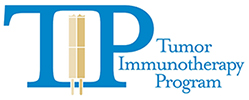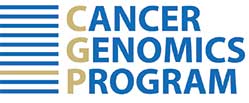SPEAKERS
|
|
INTRODUCTORY SPEAKERS |
|
University Health Network |
Dr. Bradly Wouters is an internationally recognized leader and cancer researcher. He became Executive Vice President of Science and Research at UHN in 2016 and prior to that, served as the Interim Director of Research at the Princess Margaret Cancer Centre since 2014. He joined UHN in 2008 as Senior Scientist and Director of the Princess Margaret Hypoxia Program, and has held faculty appointments at the University of Toronto in the Department of Medical Biophysics and the Department of Radiation Oncology since that time. Prior to joining UHN, Dr. Wouters was Professor and Head of Experimental Radiation Oncology at Maastricht University in the Netherlands. As EVP of Science and Research, Dr. Wouters is focused on creating an environment that incentivizes, facilitates, and rewards excellence in basic, translational, and clinical research across all elements of UHN. |
|
Dr. Keith Stewart University Health Network |
Dr. Keith Stewart received his medical degree at the University of Aberdeen Medical School and trained in internal medicine and hematology in Glasgow, Kingston, Toronto and Boston. In 2002, he completed a Master of Business Administration at the Ivey Business School, University of Western Ontario. He has served in several healthcare leadership roles across both research and clinical practice in Toronto and at the Mayo Clinic, where he was recently Director of the Center for Individualized Medicine. Dr. Stewart’s own research and clinical practice is focused on the biology, genomics and treatment of multiple myeloma. He has published over 350 research papers and led numerous clinical trials of novel therapeutics for this disease from first-in-human to large practice-changing studies. He has served on the advisory and medical or scientific boards of many private and public institutions, including currently as a non-executive board member of Genomics England. |
|
|
SESSION CHAIRS |
|
Princess Margaret Cancer Centre |
Dr. Enrique Sanz Garcia is a medical oncologist and staff physician at the Princess Margaret Cancer Centre, with a clinical focus on head and neck, and gastrointestinal cancers. He was trained in Madrid, Spain, and completed his medical oncology residency at the Vall d'Hebron Oncology Institute in Barcelona. He also completed his PhD in Medicine, focusing on liquid biopsy in colorectal cancer, at the Autonomous University of Barcelona. In 2020, he moved to Toronto for a 3-year fellowship in drug development and the head and neck program. Upon completion, he was appointed as a staff physician at UHN. His main areas of research include precision medicine based on molecular profiling, liquid biopsy, and early-onset cancers of the gastrointestinal tract. He serves also as the scientific co-lead for the Marathon of Hope Cancer Centre Network program at Princess Margaret, chairs the molecular tumor board for this initiative, and co-chairs the working group for the development of a prospective study to bring precision medicine to cancer patients across Canada. |
|
Women's College Hospital |
Dr. Kelly Metcalfe is a Professor and the Associate Dean of Research at the Lawrence S. Bloomberg Faculty of Nursing and the Faculty of Medicine, Department of Surgery, at the University of Toronto and a Senior Scientist at the Women’s College Research Institute. Dr. Metcalfe received her BScN in 1996 from the University of Western Ontario, and her PhD in 2002 from the Institute of Medical Science at the University of Toronto. Dr. Metcalfe’s research focuses on the prevention and treatment of breast and ovarian cancer in high risk women, most specifically those with a BRCA1 or BRCA2 mutation. She has led international studies resulting in seminal research papers on the topic of treatment of BRCA-associated breast cancer. Dr. Metcalfe is using those research findings to test new models of care to ensure that women have access to genetic testing at the time of cancer diagnosis to make informed decisions about treatments. Dr. Metcalfe is a Fellow of the Canadian Academy of Health Sciences, the American Academy of Nursing and is a Member of the New College of Scholars in the Royal Society of Canada. She has received numerous awards, and most recently received the Women of Action Scientific Award from the Israel Cancer Research Fund. |
|
Princess Margaret Cancer Centre |
Dr. Hal Berman is a staff pathologist at University Health Network and clinician investigator at Princess Margaret Cancer Centre and has served as Scientific Director of UHN and PM Biobanks. He is recognized for his expertise in bridging diagnostic pathology with experimental studies of cancer biology and genomics in human tissues. His work has advanced development of immune cell biomarkers and provided insights into the tumor microenvironment. |
|
Dr. Marcus Butler Princess Margaret Cancer Centre |
Dr. Marcus Butler is a physician investigator with a strong interest in research and clinical medicine. He is dedicated to successfully translating novel immune-based therapies to patients. He received his MD from Yale University and was trained in Internal Medicine at Johns Hopkins Hospital. He then completed Hematology/Oncology training at Dana-Farber/Partners CancerCare, Harvard Medical School. After serving on the Dana-Farber staff, he joined the Department of Medical Oncology and Hematology at the Princess Margaret Cancer Centre in 2012. He is the Multidisciplinary Disease Site Lead for Melanoma/Skin Oncology at Princess Margaret. He is a member of the Princess Margaret Tumor Immunotherapy Program and is an Associate Professor in the Departments of Medicine and Immunology at the University of Toronto. He is Co-chair for the Melanoma and Skin Cancer Site at the CCTG (Canadian Cancer Trials Group). Dr. Butler has been involved in the early development of several important immune-based therapies for cancer, including adoptive cell therapy and immunomodulators including immune checkpoint blockade. As clinical director of the Princess Margaret Centre for Integrative Immune Analysis, he is investigating the immunologic impact of immune-based therapies as part of standard of care and in clinical trials. |
|
|
KEYNOTE SPEAKERS |
|
Stanford University |
Dr. Paul S. Mischel is the Fortinet Founders Professor and Vice Chair for Research for the Department of Pathology, Stanford Medicine. He is an Institute Scholar and Deputy Director of Translational Science at Sarafan ChEM-H, Stanford University and is also a Faculty Advisor for Experimental Biology at the Innovative Medicines Accelerator at Stanford University. Mischel is a physician scientist trained in pathology and cancer biology. His research has been published in a series of papers in Nature and Science, and has catalyzed a paradigm shift in precision oncology that promises to transform the diagnosis and treatment of patients suffering from some of the most aggressive forms of cancer. Mischel leads an international team, anchored at Stanford, that received a $25M Cancer Grand Challenges Team Science Award from Cancer Research UK and the National Cancer Institute in 2022. Mischel is a member of the National Academy of Medicine and recipient of the Ernst W. Bertner Memorial Award from MD Anderson for Distinguished Contributions to Cancer Research. Mischel is also an elected Fellow and Past-President of the American Society for Clinical Investigation, an elected Fellow of the American Association of Physicians and The American Association for the Advancement of Science and has been elected as a Fellow of the AACR Academy. Mischel is a principal co-founder of Boundless Bio., Inc., a clinical stage next generation precision oncology company. |
|
Dr. Wolf H. Fridman University of Paris |
Dr. Wolf H. Fridman is Professor Emeritus of Immunology at Université Paris-Cité in Paris, France. Dr. Fridman’s research focused on the analysis of the tumor microenvironment. Since 2005, his studies have changed the paradigm of host/cancer interactions by demonstrating that the ‘immune contexture”, taking in account the functionality, the location and the density of the immune infiltrate in colorectal tumors, is the major prognostic factor for human cancers. He is involved in the development of bioinformatic tools to quantify cells of the tumor microenvironment which are being successfully applied to predict prognosis and immunotherapeutic responses in Renal Cell Cancers, Colorectal Cancers or Sarcomas. One major achievement is the establishment of an immune classification of soft tissue sarcoma tumors that allowed to demonstrate that Tertiary Lymphoid Structures (TLS) and B cell signatures, better than T cells, predicted favorable clinical outcome and therapeutic response to anti-PD- 1 therapy in patients. These findings were recently extended to other cancers treated with immune check-point blockers showing that plasma cells generated inside TLS produce anti-tumor antibodies associated with patient’s response to immunotherapy. They open the way for novel immune-based tools for efficient prognosis and therapy of cancers. |
|
|
CANCER GENOMICS AND DEBATE SESSION SPEAKERS |
|
Mayo Clinic |
Dr. Aadel Chaudhuri is Professor and Vice Chair of Translational Research at the Mayo Clinic Department of Radiation Oncology, where his research focuses on the development and application of liquid biopsy technologies. His laboratory is R01- and R35-funded by the National Cancer Institute and the National Institute of General Medical Sciences, respectively. |
|
Dr. Erica Tsang Princes Margaret Cancer Centre |
Dr. Erica Tsang is a medical oncologist in the GI and Phase I groups at the Princess Margaret Cancer Centre and Assistant Professor at the University of Toronto. She completed her Internal Medicine and Medical Oncology training at the University of British Columbia, followed by further training in GI and early phase oncology at the University of California, San Francisco and a Masters of Public Health at Harvard University. Her research interests include genomics and clinical trials, with a focus on pancreatic cancer. |
|
Dr. Raymond Kim Princess Margaret Cancer Centre |
Dr. Raymond Kim is a medical geneticist at the Princess Margaret Cancer. He is medical director of cancer early detection and the Bhalwani familial cancer clinic. He also is the Head of the Provincial Genetics Program at Ontario Health. |
|
Dr. Kasmintan Schrader BC Cancer |
Dr. Kasmintan Schrader is a Clinician-Scientist, Medical Geneticist who received her PhD in Pathology and Laboratory Medicine at the University of British Columbia. She trained in cancer susceptibility gene discovery at Memorial Sloan Kettering in New York and returned to BC in 2014 to build the Familial Pancreatic Cancer Program. In 2016, she became Co-Medical Director of BC Cancer’s Hereditary Cancer Program and in 2021 was awarded a Tier 2 Canada Research Chair in Clinical Cancer Genetics and Genomics. Dr. Schrader investigates the utility of germline variation in overall cancer care and prevention, to harness precision oncology for the benefit of patients and families. |
|
|
TUMOR IMMUNOTHERAPY SESSION SPEAKERS |
|
Dr. Anastasia Tikhonova Princess Margaret Cancer Centre |
Dr. Anastasia Tikhonova completed her dissertation research in the laboratory of Dr. Alfred Singer at the National Cancer Institute, as part of the NIH-University of Pennsylvania Graduate Partnership in Immunology (2007-2011). There, she became interested in how microenvironmental factors dictate cell fate choices. Anastasia then continued her training in the laboratory of Dr. Iannis Aifantis (New York University Medical School), where she identified niche factors that govern hematopoietic stem cell differentiation and leukemia progression (2012-2019). In 2020 she joined Princess Margaret Cancer Centre as a Scientist and is an Assistant Professor in the Department of Medical Biophysics at the University of Toronto. For her work, Anastasia received a number of awards, including Leukemia and Lymphoma Society Special Fellow Award, Alex’s Lemonade Stand Foundation Young Investigator Grant, ASH Fellow to Faculty Award, Gilead Research Scholar in Hematology/Oncology, V Scholar, and an AACR Next Generation STAR award. Anastasia also holds Tier 2 Canadian Research Chair in Stem Cell Niche Biology. She is also committed to addressing gender bias within research and is a co-chair of Gender Equity committee at Princess Margaret Cancer Center. |
|
Dr. Grégoire Marret Princess Margaret Cancer Centre |
Dr. Grégoire Marret received his medical degree from Université Paris Cité and subsequently held a post-graduate position as a Medical Oncology Assistant Professor at Hôpital Européen Georges Pompidou in Paris, France. He then completed his final oncology subspecialty training as a Clinical Research Fellow in the Department of Drug Development and Innovation (D3i), headed by Prof. Christophe Le Tourneau at the prestigious Institut Curie. Dr. Marret earned a Ph.D. in Bioinformatics from Université Paris-Saclay. During his time at D3i, Prof. Le Tourneau, a former Fellow at The Princess Margaret, encouraged him to apply for a drug development-focused Fellowship with the head and neck team in the Drug Development Program led by Prof. Lillian Siu at Princess Margaret Cancer Centre. Dr. Marret’s research has demonstrated that targeted sequencing of circulating tumor DNA in blood enables comprehensive and continuous characterization of tumor heterogeneity, offering a potential improvement in precision medicine compared to single tumor biopsies. This work was recognized with the Margaret Foti Foundation Scholar-in-Training Award at the 2023 American Association for Cancer Research Annual Meeting. Currently, his fellowship research focuses on developing a predictor for immune checkpoint inhibitor response in patients with recurrent or metastatic head and neck cancer, utilizing cutting-edge spatial transcriptomics and machine learning approaches. He is also actively engaged in analyzing and interpreting spatial transcriptomics data from the INSPIRE (NCT02644369) and IO-KIN (NCT04606940) trials, both of which are investigator-initiated studies led by the Tumor Immunotherapy Program. His research explores the composition and spatial organization of the tumor microenvironment in head and neck cancers, as well as how these features evolve during treatment, with the goal of identifying new biomarkers. Since joining Princess Margaret as a Fellow, Dr. Marret has been honored with the Hold’em for Life Oncology Fellowship Award from the University of Toronto, as well as the Novartis Oncology Young Canadian Investigator Award (NOYCIA). |
|
Dr. Catherine Sautès-Fridman University of Paris |
Dr. Catherine Sautès-Fridman is Professor Emeritus at the Université Paris Cité. Former director of the “Cancer, immunology and immunopathology” department (2007- 2016) and director of the “Immunity and cancer” team (2006-2013) at CRC, she focuses her research on the heterogeneity of the immune and inflammatory components of the microenvironment tumor in human cancers to identify new prognostic and theranostic markers. She carried out work in several fields: histocompatibility antigens (demonstration of the association of HLA antigens with beta2- microglobulin and description of the 3rd histocompatibility locus, Néauport-Sautès C), receptors for IgG antibodies (biological activity and 3D structure, Sautès C and Sautès-Fridman), immuno-oncology (role of IL17, tumor microenvironment immune profiles of patients at risk of disease progression in kidney cancers, role of Tertiary Lymphoid Structures -TLS- Sautès-Fridman C). She has trained 15 doctoral students and 18 master's students. Former French Society of Immunology and European Federation of Immunological Societies, EFIS, president she promoted immunology in Europe, the “EFISEJI Ita Askonas Award” to acknowledge female group leaders in immunology, and founded the first European Congress of Immunology (ECI, 5000 participants) in 2006 in Paris. Editor-in-chief of " La Revue Immunité et cancer ". |
|
Dr. Linghua Wang MD Anderson Cancer Center |
Dr. Linghua Wang is a Professor with tenure in the Department of Genomic Medicine at MD Anderson Cancer Center. She is also an Associate Member of The James P. Allison Institute and Lead of Focus Area 2 (Single-Cell Analytics & Spatial Multi-Omics) at the Institute for Data Science in Oncology. Her expertise encompasses cancer genomics, computational biology and pathology, and immuno-informatics. Her group specializes in deep profiling of tumor ecosystem dynamics during tumor development, metastasis, and therapy response. They utilize cutting-edge single-cell and spatial omics technologies, cellular and molecular imaging, AI pathology, and machine learning methods, integrating these with advanced bioinformatics tools to drive transformative discoveries. Dr. Wang’s group has published numerous influential studies on deep profiling of cancer cells, the tumor microenvironment, and biomarker discovery (e.g., n>140 papers; >60,000 citations; Nature n=4; Nature Med n=4; Cancer Cell n=3; Cancer Discovery n=4; Nature Genetics; Nature Commun n=8) and has led or co-led the development of multiple spatial profiling tools. She serves as Lead PI or MPI on multiple NIH/NCI (e.g., HTAN U01, CSBC/U01, R01) and CPRIT grants, co-Leads the Break Through Cancer Data Science Hub, and has been recognized with prestigious honors including the Emil Frei, III Award for Excellence in Translational Research and the David M. Livingston Collaboration Award.” |
|
Dr. Natasha Kekre The Ottawa Hospital |
Dr. Natasha Kekre has been appointed to the Department of Medicine in the Division of Hematology, within the Transplant and Cellular Therapy Program at The Ottawa Hospital, effective October 2015. She is also an associate scientist within the Ottawa Hospital Research Institute and an associate professor of medicine at the University of Ottawa. She completed her Bachelor’s in Science at the University of Windsor then obtained her medical degree from the University of Ottawa. She then trained at the University of Ottawa in Internal Medicine and Hematology. She went on to do a fellowship in stem cell transplantation at Dana Farber Cancer Institute in Boston, MA with a Masters in Public Health from Harvard University. Her research is focused on developing early phase clinical trials and moving home grown therapeutic strategies into patients. She collaborates with a number of local investigators and scientists in Ottawa, studying hematologic malignancies and blood and marrow transplant recipients more specifically. She collaborates with scientists and physicians across Canada to build a Canadian CAR-T cell platform (chimeric antigen receptor T cells are immune cells engineered to kill cancer cells), bringing this exciting therapy to Canadian patients. Her other clinical research interests include improving transplant and CAR-T related outcomes, learning from current and future transplant and CAR-T treatment platforms. She also participates with a number of cooperative groups in North America including the Center for International Blood and Marrow Transplant Research and Cell Therapy Transplant Canada. She has built worldwide collaborations with scientists, physicians and regulators to improve access and innovation in the CAR-T and immune therapy space globally. |
|
|
CLOSING REMARKS (MEETING CO-CHAIRS) |
|
Dr. Lillian Siu Princess Margaret Cancer Centre |
Dr. Lillian Siu is a senior medical oncologist at Princess Margaret Cancer Centre, and is a Professor of Medicine at the University of Toronto. She is the Director of the Phase I Trials Program, co-leads the Tumor Immunotherapy Program and holds the BMO Chair in Precision Genomics. Dr. Siu had served on the Board of Directors of both the American Society of Clinical Oncology (ASCO) and the American Association for Cancer Research (AACR). She is a fellow of ASCO, AACR and the Canadian Academy of Health Sciences (CAHS). Dr. Siu is the 2025-2026 President of the AACR. Dr. Siu’s major research focus is in the area of new anticancer drug development, with respect to phase I trials and head and neck malignancies. Her translational research focus is in the area of liquid biopsies, predictive biomarkers and precision medicine. Internationally, Dr. Siu was the recipient of the US National Cancer Institute’s Michaele C. Christian Award in 2010, European Society of Medical Oncology’s Targeted Anticancer Therapies (TAT) Honorary Award in 2020, Canadian Cancer Trials Group’s Maria Ricci Memorial Lectureship in 2023, and ASCO’s highest honor - David A. Karnofsky Memorial Award in 2024. Dr. Siu received the 2024 Lifetime Achievement Award from the Chinese American Hematologist and Oncologist Network (CAHON). For her mentorship of early career investigators, Dr. Siu received the International Women Who Conquer Cancer Mentorship Award from ASCO in 2020. Dr. Siu has published nearly 400 peer-reviewed manuscripts, and she is the co-Editor-in-Chief for AACR’s Cancer Research Communications, and is on the editorial board for Cell and Cancer Cell. |
|
Dr. Philippe Bedard Princess Margaret Cancer Centre |
Dr. Philippe Bedard is a Professor of Medicine at the University of Toronto. He is a Staff Medical Oncologist in the Division of Medical Oncology, Director of the Cancer Genomics Program, and a Principal Investigator in the Bras Drug Development Program at the Princess Margaret Cancer Centre. He is the co-contact Principal Investigator for the North American Star Consortium (NASC), a US National Cancer Institute (NCI) Experimental Therapeutics Clinical Trials Network (ETCTN) UM1-funded consortium that conducts early phase investigator-initiated clinical trials with new therapies for solid tumors and hematologic malignancies. He received the 2017 William E. Rawls Prize from the Canadian Cancer Society, given to a young investigator whose outstanding contributions have the potential to lead to, or have already led to important advances in cancer control. He received the 2023 Michaele C. Christian Award from the NCI Cancer Therapy Evaluation Program for outstanding contributions to the development of novel agents for cancer therapy. He was the past Chair for the Canadian Clinical Trials Group (CCTG) Investigational New Drug (IND) Committee and the past Chair of the American Association for Cancer Research (AACR) Project Genomics, Evidence, Neoplasia, Information, Exchange (GENIE), an international clinical and genomic data-sharing initiative. His clinical practice includes the treatment of patients with breast and testicular cancers. His research involves early phase clinical trials with novel cancer drug treatments including immunotherapy agents and the personalization of cancer treatment based upon the results of testing for DNA mutations within tumor cells. |



